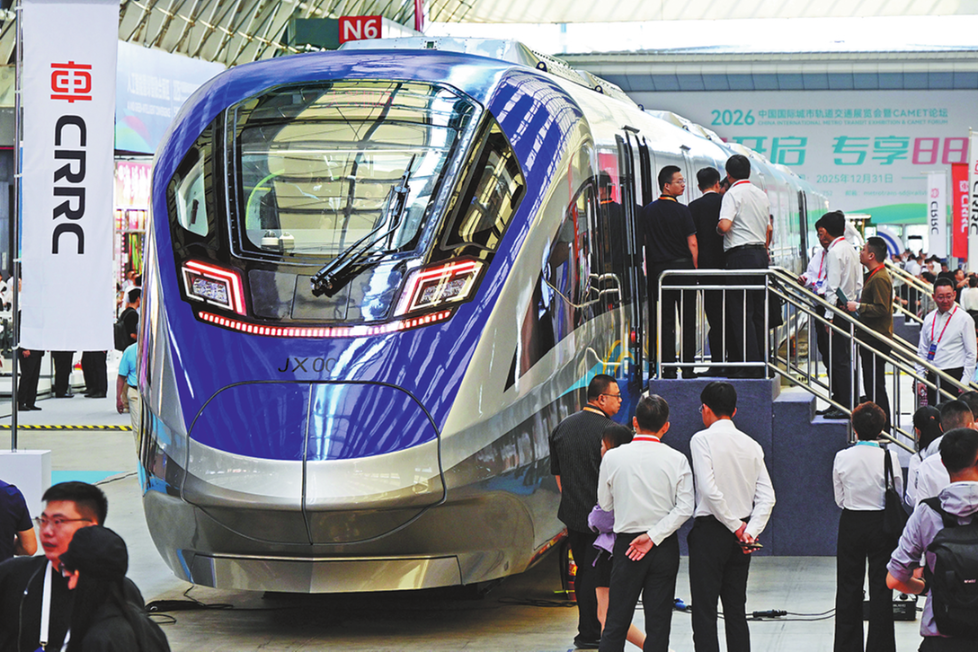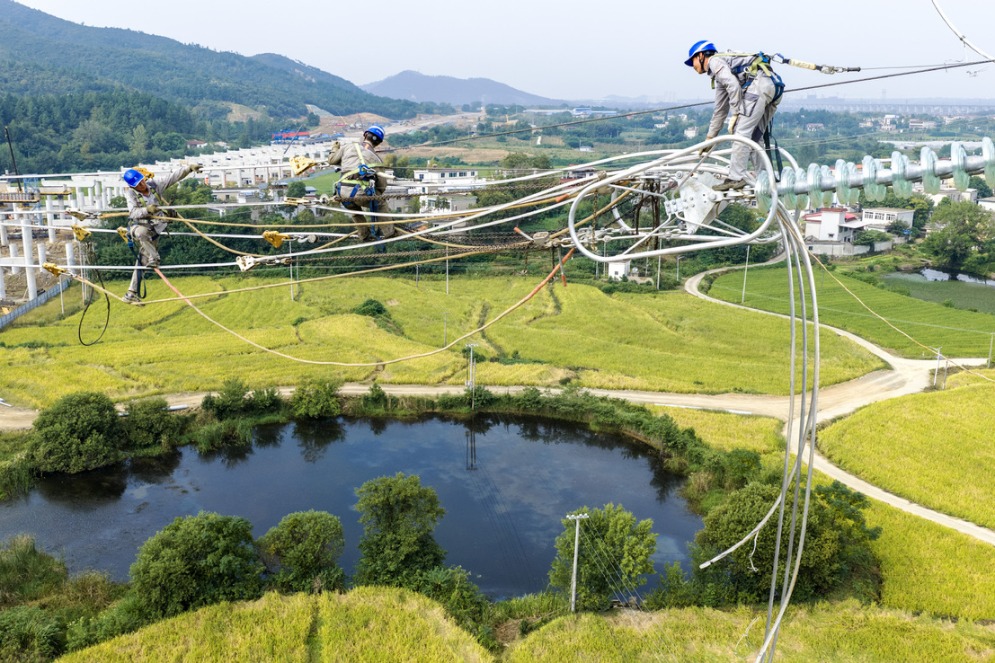Change of focus


The pandemic has generated new forces for financial cooperation under the framework of the Belt and Road Initiative
Financial connectivity is one of the key cooperation areas under the framework of the Belt and Road Initiative, as it lays the ground for financing all projects, services and coordination in other areas.
The framework of the financial regulatory system has been gradually improving in China, which has signed local currency swap agreements, renminbi clearing agreements and memorandums of understanding on cooperation in financial regulation with various countries.
By the end of 2020, the Cross-Border Interbank Payment System, a cross-border renminbi payment system that China launched in 2015, covered 98 countries and regions, attracting 1,046 financial institutions. However, when it comes to Belt and Road financial cooperation, many issues remain to be addressed.
A large amount of Chinese trade and investment is still paid for in US dollar, meaning there is much room for improvement when it comes to renminbi's internationalization. The insufficient foreign stock of the renminbi and China's relatively weak financial infrastructure abroad has been strangling the renminbi's application in global trade.
The growth of the global economy has slowed because of the pandemic, which has also severely impacted the Belt and Road financial cooperation because of project suspensions or terminations. However, opportunities for development can be born out of challenges. In the face of the ongoing pandemic, China has offered many other countries material support and cooperated with other countries on a series of financial measures to jointly address problems and challenges.
Some specific examples under the Belt and Road framework include: In March 2020, the Belt and Road Inter-Bank Regular Cooperation Mechanism launched a proposal to support China and other countries in their fight against the novel coronavirus; in June 2020, at the Extraordinary China-Africa Summit on Solidarity Against COVID-19, China promised to cancel the debt of relevant African countries in the form of interest-free government loans that were due by the end of 2020; in July 2020, at the eighth China-EU High-level Economic and Trade Dialogue, China declared its support for aligning the Belt and Road Initiative with the European Union's Eurasia Connectivity Strategy, as well as its determination to increase openness in the area of finance.
The COVID-19 pandemic has underlined the importance of international cooperation in regional and global issues and the validity of building a community with a shared future for mankind as a means to jointly address global challenges.
The confidence in multilateral cooperation, which was severely affected by the United States pulling out of a number of international agreements, has been regained with the signing of the Regional Comprehensive Economic Partnership agreement. In China's domestic discourse, the RCEP has triggered discussions on how to connect China's 21 pilot free trade zones with the agreement. The RCEP and the Belt and Road Initiative will complement each other in the future and this also marks the Belt and Road Initiative's shift toward regional cooperation.
The RCEP will further open the Chinese financial services market to foreign investors while bringing greater opportunities for Chinese companies in the region.
The COVID-19 pandemic has made it more urgent to deepen financial cooperation under the framework of the Belt and Road Initiative, with the following possible areas.
First, there should be investment and financing institutions that will facilitate information sharing and exchanges under the framework of the Belt and Road Initiative.
Considering the general asymmetry of information between investors and projects, it is rational to set up information-sharing platforms using advanced digital technology, promoting the linkage of funds and projects at home and abroad and providing services to select and match these funds and projects.
Second, Chinese financial institutions can be encouraged to actively engage in third-party market cooperation, specifically with foreign financial partners, and carry out financial projects in a third country.
Third, professional financial consulting service platforms that specialize in assessment of country and industry risks could be established to provide services to both domestic and overseas companies.
In the Proposals of the Communist Party of China Central Committee on Formulating the 14th Five Year Plan, the economic and social policy agenda for 2021 to 2025, high-quality joint construction of the Belt and Road is emphasized, adhering on market-oriented policies and building a diversified investment and financing system.
It conforms to China's new development paradigm for more sustainable and high-quality growth. During this period, China will continue to strengthen the coordination of policies, rules and standards between countries, with public health, digital economy, science and technology, and education being important areas of cooperation.
The main focus of the Belt and Road Initiative, which was originally about investment in large-scale infrastructure projects, is shifting generally to green, sustainable projects as well as services. In the post-pandemic era, inclusive and green finance will play an important role in Belt and Road financial cooperation.
The author is a research fellow at the Institute of the Belt and Road Initiative at Tsinghua University. The author contributed this article to China Watch, a think tank powered by China Daily. The views do not necessarily reflect those of China Daily.


































